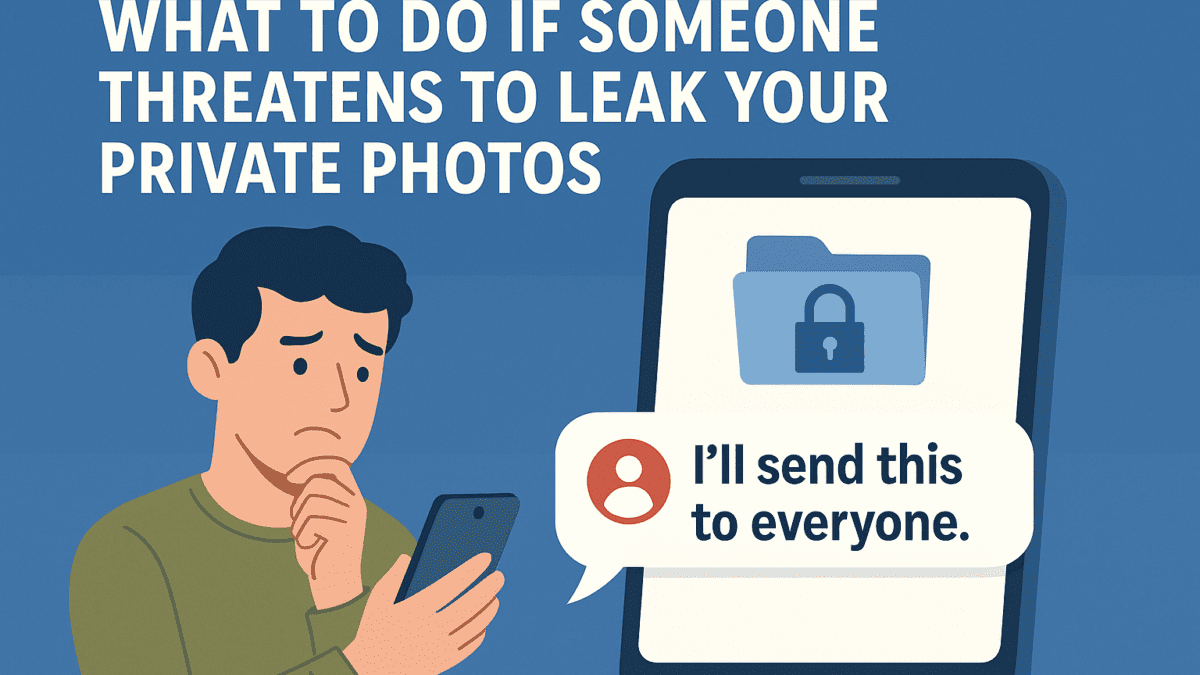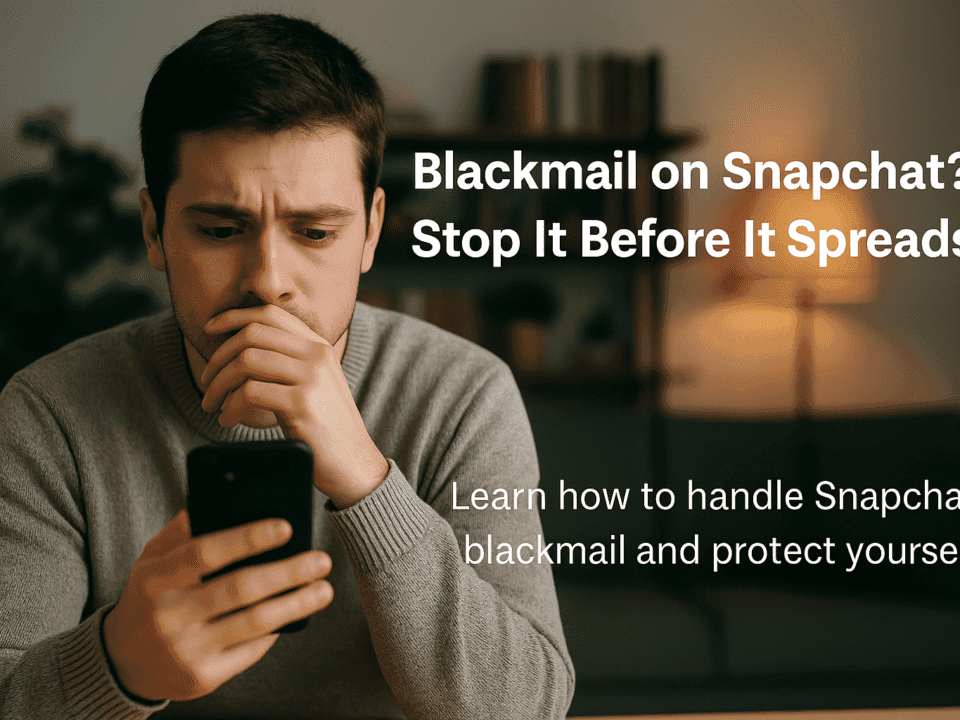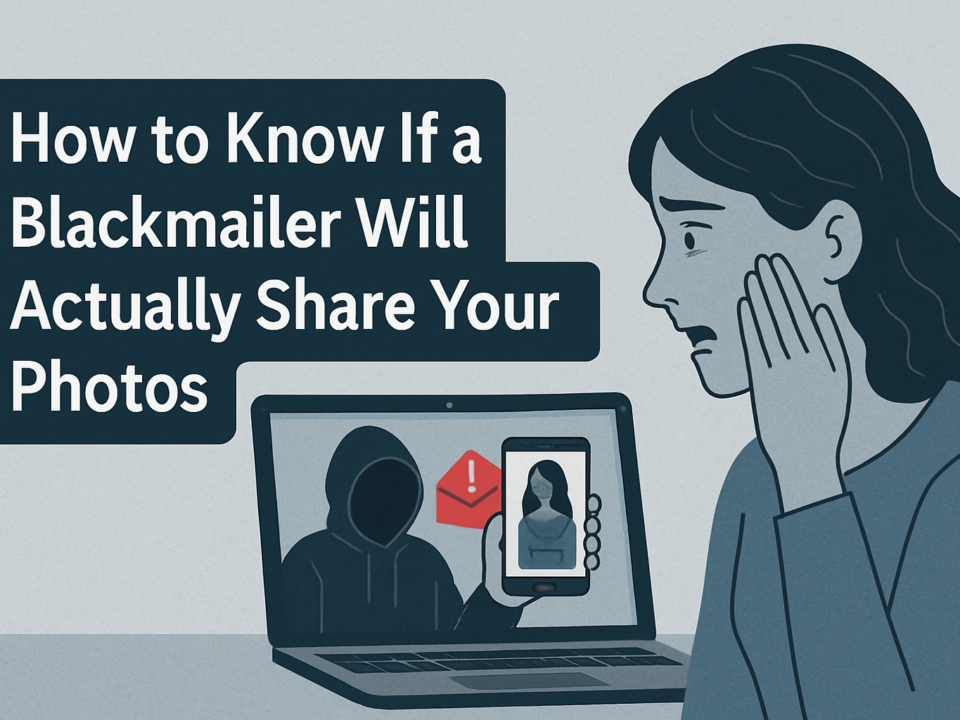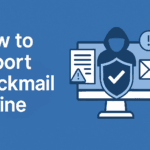
How to Report Blackmail Online: A Proven Step-by-Step Guide to Get Help Fast
July 11, 2025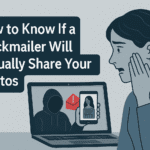
How to Know If Blackmailer Will Share Your Photos
July 14, 2025If you’re searching "what to do if someone threatens to leak pictures," you’re likely dealing with one of the most stressful and invasive forms of online harassment. The fear is real, but there are steps you can take — and you don’t have to face this alone.
This guide breaks down what’s really happening behind these threats, and more importantly, how to respond. Whether the person threatening you is an ex-partner, a fake online profile, or someone you don’t even know, the method to protect yourself is the same.
Why These Threats Happen
Blackmailers prey on your fear, hoping you’ll act impulsively. In most cases, they never intend to leak anything — their goal is to pressure you into paying them. Once you pay, they know they’ve got leverage.
This behavior is a form of digital extortion, and it’s becoming increasingly common. Blackmailers use fake identities, hacked accounts, and throwaway numbers or emails to remain anonymous. Their main weapon is fear — and the more you engage, the more power they gain.
That’s why your response in the first 24 hours matters the most. Don’t panic — take action.
Step-by-Step: What to Do If Someone Threatens to Leak Pictures
🔒 1. Don’t Give In
Never send money. It encourages more demands and doesn't guarantee safety. Responding emotionally or pleading also strengthens their grip. No matter how convincing or threatening they seem, don’t fall into the trap.
🚫 2. Cut Off Contact
Block them on every platform — Instagram, Snapchat, WhatsApp, Facebook, Telegram. If they’re contacting you by phone or email, block those too. The less they hear from you, the less control they have.
📸 3. Gather Evidence
Screenshot all messages, profiles, threats, and user handles. Save this evidence in a secure folder or cloud storage. Include timestamps, phone numbers, usernames, and any identifiable information that could be useful later.
🔐 4. Secure Your Online Accounts
Change your passwords immediately and enable two-factor authentication. Review your connected apps and revoke anything suspicious. Check login histories for unfamiliar access.
🔍 5. Reverse Image Search
Use Google Images or Yandex to check if your images are already online. It’s a quick step that can offer peace of mind or help you act faster if anything has been posted.
📝 6. Report the Threat
Use the in-app reporting features on every platform involved. If you’re in the UK, file a police report under harassment or blackmail. You can also report to Action Fraud (the UK’s national cybercrime reporting centre).
🤝 7. Talk to a Trusted Expert
If you’re feeling overwhelmed, you’re not alone. Getting help from someone who understands digital threats can make all the difference. You deserve support, not shame.
Why Getting Help Matters
Fighting this alone is overwhelming. That’s why many victims turn to professional help. At Blackmail Shield:
We remove private content fast from the internet
We disrupt the blackmailer’s ability to contact you
We offer legal and emotional support throughout the process
Need more? Check our detailed guide: How to Get Out of Blackmail
For an additional resource, you can also visit NCMEC if you're in the US.
Common Questions People Ask
❓ What if someone leaks your private photos?
This is rare, but if it happens, time is critical. We can help you request removals from websites, search engines, and social media.
❓ Can I trust the police to help?
In many countries like the UK, yes. But they often lack resources to act fast. Reporting is still helpful for your legal protection.
❓ Will ignoring the threat make them stop?
Sometimes — but only if you’ve also blocked, secured, and taken defensive steps. Otherwise, they may keep trying. The silence must be strategic — not passive.
❓ Can a lawyer help in cases like this?
Yes. In many countries, sharing someone’s private images without consent is illegal. Having legal guidance adds weight to your actions and offers peace of mind.
❓ Should I delete my accounts?
Not always. Deleting accounts too early may remove key evidence. It's better to secure them first and consult with experts before taking drastic steps.
Final Advice: What If Someone Leaks Your Private Photos
If someone is threatening to leak your private pictures:
✅ Don’t panic or pay them.
✅ Block and secure your online presence.
✅ Collect evidence.
✅ Seek professional support quickly.
✅ Remember — you are not alone.
This happens to thousands each week. But with the right response, it can be stopped.
📌 Need Expert Help?
Visit BlackmailShield.com — 100% private support, trusted by victims worldwide.
Related Articles:
External Resources:

